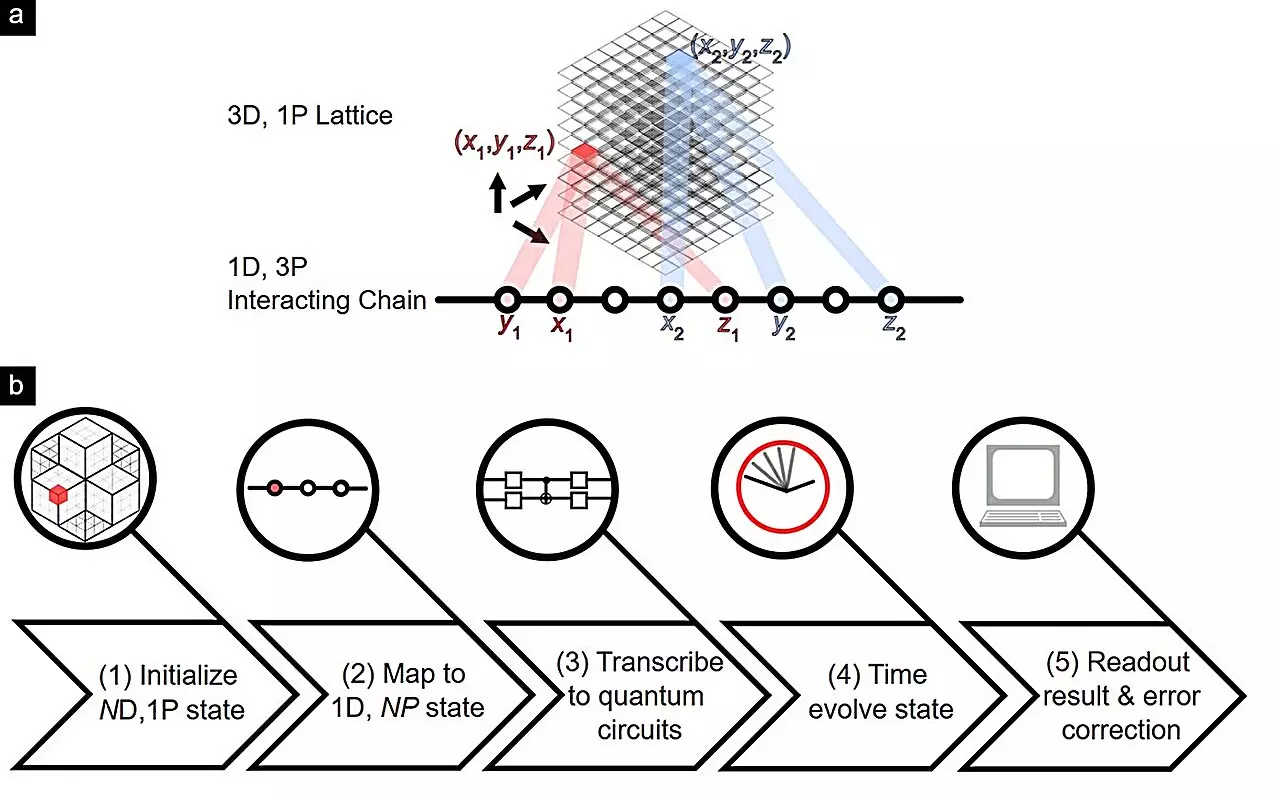In a groundbreaking study conducted by researchers at the National University of Singapore (NUS), there has been a successful simulation of higher-order topological (HOT) lattices using digital quantum computers. These complex lattice structures have the potential to revolutionize our understanding of advanced quantum materials and their robust quantum states, which are highly sought after in various technological applications. The study of topological states of matter, particularly their HOT counterparts, has garnered significant attention from physicists and engineers alike.
Led by NUS Assistant Professor Lee Ching Hua, the team of researchers has developed a scalable approach to encoding large, high-dimensional HOT lattices into simple spin chains that exist in current digital quantum computers. By leveraging the immense storage capabilities of quantum computer qubits and minimizing resource requirements in a noise-resistant manner, the researchers have paved the way for a new dimension in the simulation of advanced quantum materials. This groundbreaking development holds the promise of unlocking new potential in topological material engineering.
In their published research in the journal Nature Communications, Prof. Lee highlighted the significance of their work in finding new applications for which quantum computers offer unique advantages. The team’s approach allows for the exploration of the intricate signatures of topological materials with unmatched precision, even in hypothetical materials existing in four dimensions. Despite the challenges posed by current noisy intermediate-scale quantum (NISQ) devices, the team has managed to measure topological state dynamics and protected mid-gap spectra of HOT lattices with unprecedented accuracy, thanks to innovative error mitigation techniques developed in-house.
The ability to simulate high-dimensional HOT lattices opens up new research directions in the realm of quantum materials and topological states. This suggests a potential pathway towards achieving true quantum advantage in the future. By pushing the boundaries of current quantum technology, the researchers at NUS have demonstrated the immense potential of digital quantum computers in exploring new frontiers in material engineering. This breakthrough not only expands our understanding of advanced quantum materials but also propels us towards a future where quantum computing plays a pivotal role in technological advancements.


Leave a Reply